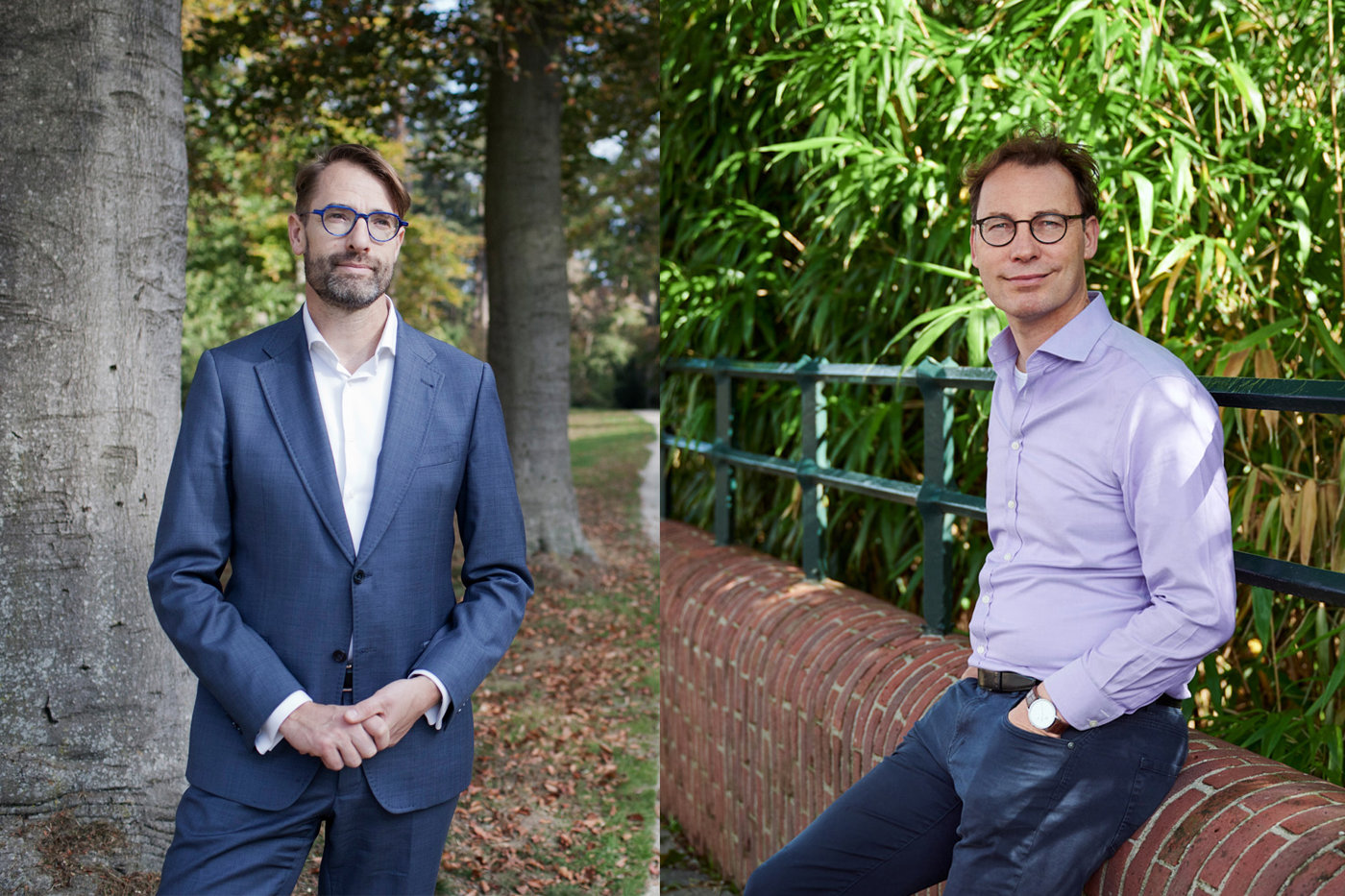Two economists on a different form of economic growth
Economic growth is beginning to take its toll on people and the environment. Nature has reached its limits and people are rebelling against the unequal distribution of wealth. According to economists Hans Stegeman of Triodos Investment Management and Charles Kalshoven of APG, we need a drastically different way of thinking. "People are getting a different sense of what is valuable."
Hans Stegeman is a Chief Investment Strategist at impact investor Triodos Investment Management. He regularly publishes about the boundaries of the current economic system. Charles Kalshoven is a macro-economist and senior strategist at APG. In his columns, he discusses economic developments and how they affect our daily lives.
Hans, as an economist, you regularly publish about your belief that the current system of striving for endless economic growth is no longer sustainable. What do you mean by that?
"I'm not against economic growth, but it does have major negative consequences for the planet: climate change, increasing social inequality and the drastic decline in biodiversity. Some say that new technology can solve those problems, but I haven't seen any convincing evidence for that. I sincerely hope technologies such as CO2 capture (capturing CO2 as soon as it is released during combustion and thus preventing it from entering the air, ed.) will help, but I have my doubts. I really think we need to move to a different form of growth. Incidentally, I think economic growth is a limited concept for measuring progress. Growth doesn't always equate to happiness or well-being."
Charles: "Classic economic theory sees economic growth as the outcome of capital and labor. But since the industrial revolution, an important factor has been added, namely energy. And so far, this has mainly been fossil energy. This comes at a price, in the form of damage to people and planet. But it's not or insufficiently passed on in the price of products."
Still, poor countries need economic growth to get out of poverty.
Charles: "That's a dilemma. If you want to fight poverty, you need economic growth. And that in turn leads to a greater demand for energy. On the other hand, you want to limit the use of energy to combat climate change. So we have to look for a different kind of growth that requires less energy and makes more use of renewable energy. We need to handle raw materials more carefully and reuse them; we have to transport less stuff and people all over the world. What helps is that economic development usually leads to smaller families and thus lower population growth. And that benefits the climate."
Hans: "The boundaries of our ecosystem are rock-hard. There's only one planet earth. That can't be changed. We'll have to find a way to create prosperity for everyone within these limits. Prosperity is very unevenly distributed. The richest 10% of the world - and that includes most of the Dutch - are buying more and more stuff, without really being happy about it. While at the same time, there are billions of people who are starving and barely have a roof over their heads. This should be fairer."
How do we get such a sustainable, fair form of economic growth off the ground?
Hans: "We have to think differently in the West. We live in a competitive world where everyone wants to race to the top. With an expensive watch or designer clothing as a status symbol. But do they really make us happy? Or are they values such as togetherness and being satisfied with what you have? To achieve such a change in thinking, all parties involved must cooperate, the government, businesses, consumers and investors. You have to play chess on all boards. And each game starts from a different point. That's very complex."
Charles: "We need a different definition of 'a good life'. Currently, it's mass consumption. And status. But the things that bring status can change. The younger generation no longer thinks it's 'cool' to work 80 hours a week, and attaches importance to other things than making a lot of money. The government also has a role to play in this. It has to create a remote prospect, something we all want to aim for. And then stimulate this with laws and regulations. For example, by including the costs of CO2 emissions in the prices of products."
